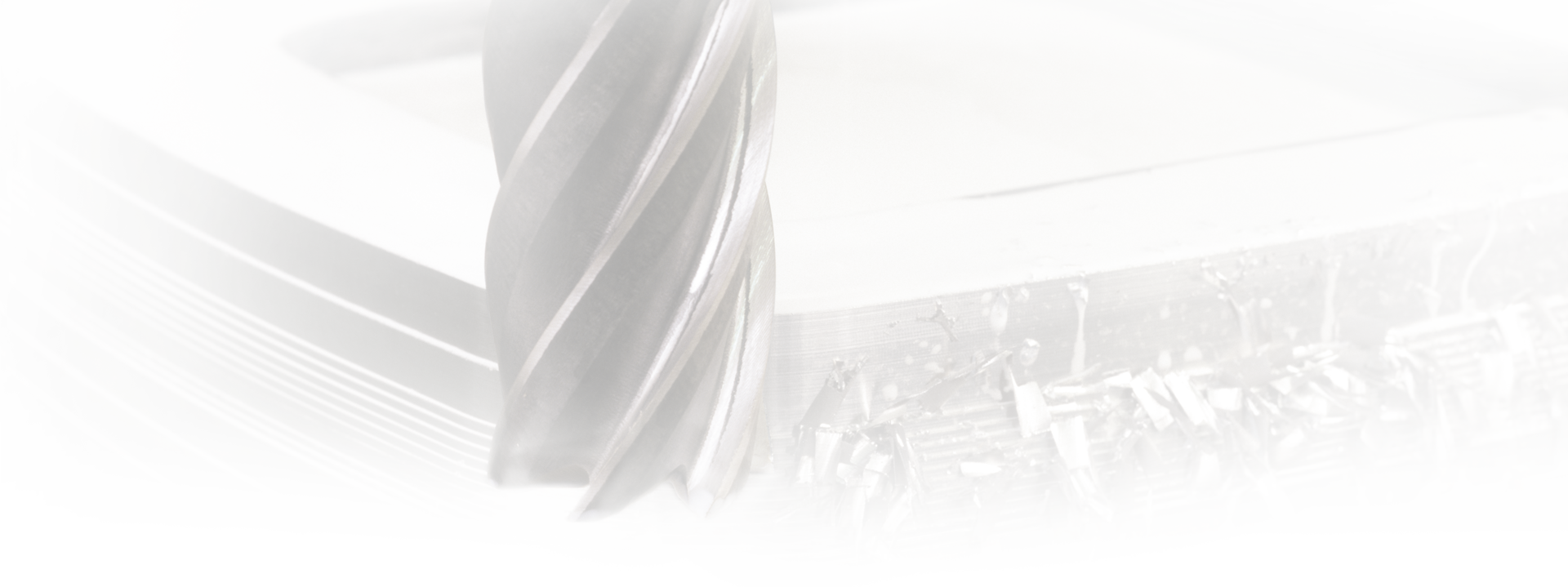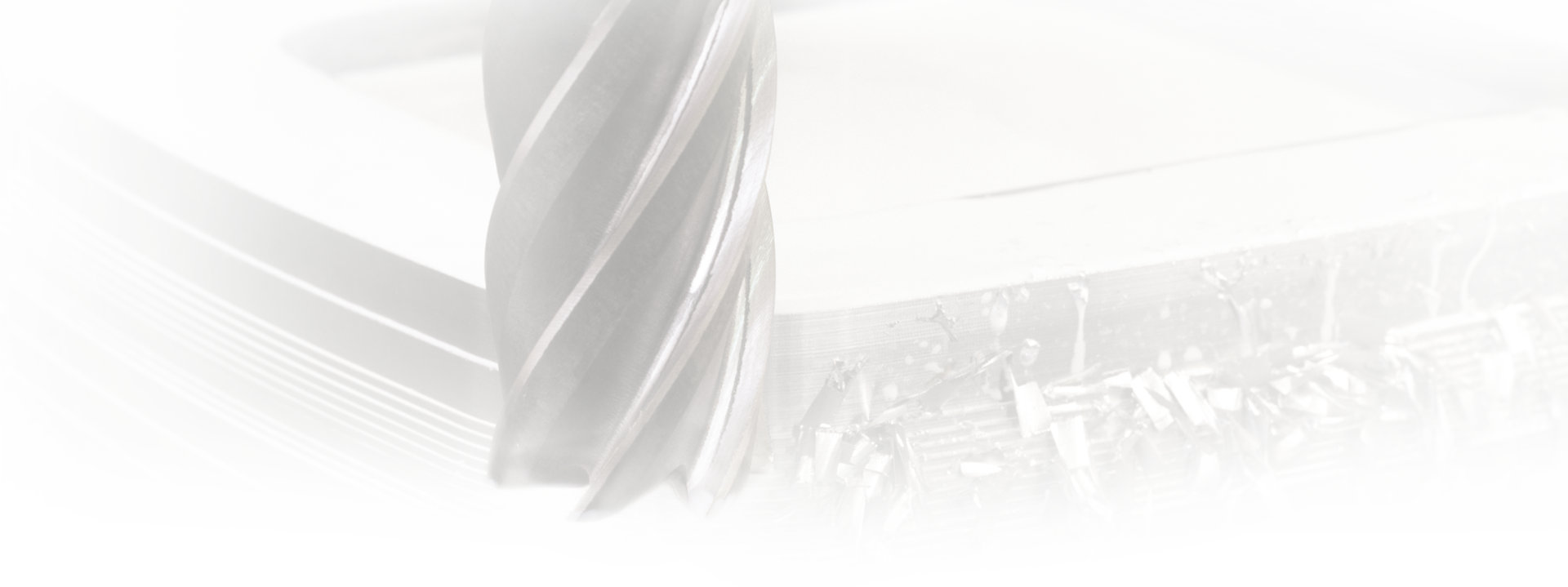-
Posts
292 -
Joined
-
Last visited
Content Type
Profiles
Forums
Downloads
Store
eMastercam Wiki
Blogs
Gallery
Events
Posts posted by Peter - Avivi CNC Solutions
-
-
*e$ also do the job
.gif)
-
Hi Tobi,
please also mind that Arc Filter settings are also can affect the machine behavior.
Also I would verify the machine internal parameters and settings.
-
On 7/27/2020 at 7:08 PM, Colin Gilchrist said:
These are the valid combinations:
Hi Colin,
sooo there are only 8 valid axis combinations are exits?
TIA, Peter
-
On 10/29/2020 at 10:20 PM, machineimpossible said:
I'm trying to use this, but am not sure where to put it, and where to put the call for it.
Thanks
Hi, call it from pheader$ postblock. You can put it anywhere.
You need to define some temp string variables like:
sTL_NamesTL_StringsTL_HolderName -
On 7/3/2020 at 2:05 AM, Zaffin_D said:
On thing to note; pnci20000$ will not run if the pparameter$ postblock is present in the post.
I didn't even know about pnci20000$
 Learning is an endless curve...
Learning is an endless curve... .gif) THX Zaffin!
THX Zaffin!
-
 1
1
-
-
1 hour ago, Zaffin_D said:
Use a stack?
Yeah, stack(s)! Just forgotten, even if I used them :)
AFAIK stack is limited to numbers only (no strings), but still they very useful.
1 hour ago, Zaffin_D said:But, to write a stack to a file you need a buffer so it may not work for your application.
No, stack is a standalone stuff and you can define as many as you wish.
1 hour ago, Zaffin_D said:I’m not sure why stacks aren’t used more often by post developers.
I did! :) I use stacks to collect tool H/D numbers.
-
Without knowing what your C-Hook does, I have the feeling that you have way more tools to manipulate text/NC file via C-Hook instead of a simple buffer. I've developed a NET-Hook for CIMCO MachSim and it has the option to manipulate everything outside of post, but still injects lines into NC code.
JM2C
Or you can try to figure out which buffer is a string buffer and re-use it for your purposes. Perhaps.
-
I would create another string type buffer for toolplane names. You can not mix numbers and strings into 1 buffer.
Well, you can, but then it's still just a string buffer with letters and numbers (not values).
-
1 minute ago, Zaffin_D said:
Yes. Here you are.
Thank you Zaffin, great help!
-
14 hours ago, Zaffin_D said:
Yes, you can pass a struct, see below
Hi Zaffin,
are you willing to share this both VC projects on GitHub?
TIA,
Peter
-
37 minutes ago, baby byte said:
If you are passing a known number of string you could create a struct in cli and pass that to your function :
Thank you Peter, that makes sense! I'll play with it.
-
Might Mazak has an API like Okuma and some others have? Even 640MT is a bit oldish'
-
On 5/27/2020 at 4:00 PM, Roger Martin from CNC Software said:
A simple C++/CLI project that creates an interop DLL that your NET-Hook add-in can use would be simple to create.
I have such a project.It appears you are looking for these data items in each operation -
Operation Name (comment)
Operation ID (number)
Operation Type ("type" code)
Operation Tool Number (and probably also the Tool Slot Number)
“Toolpath Visibility” status
“IsDirty” status
“Selected” status
“Posting” status (Is the operation ghosted?)
*Are there more?Hi Roger,
are you passing all the data as an array from C++/CLI to managed NET-Hook? I use similar approach to expose some Chook functions which are not available in NET-Hook, but I only pass some values, strings. I use Text.StringBuilder in one case to receive a list of Stock Model (operations) names.
Is there a better approach and/or better for multiple data like this example above?
TIA, Peter
-
15 hours ago, akuser said:
Can anyone tell me how to fix it or which post block to looking for.
Perhaps psof$?
-
7 minutes ago, machineimpossible said:
Thank you. I will look into this more in the future. What I find strange is that using Manual entry "as comment" already works as I like, starting a new comment in the code for each end of line in the input box. But I can't seem to find in the .pst why it is treating the group comment box differently than the manual entry box
Manual entry and group comment are different animals. If you OK with Manual Entry as first OP, go for it.
It might will be mixed up if your first (technically second in the OP list) machining operation has a comment, then it might will be mixed with first Manual Entry OP...
-
Just came across in this topic, so...
Use semicolon ";" or "enter/EOB" in group comments as "separator"
pGroupComment sav_spc = spaces$ spaces$ = zero sTL_Name = groupinfo(19111) sTL_String = sTL_Name # #"Input:", *sTL_Name, e$ # while zero <> strstr(";", sTL_Name) | zero <> strstr(no2asc(13), sTL_Name), [ if zero <> strstr(";", sTL_Name), sTL_HolderName = brksps((strstr(";", sTL_Name)), sTL_Name) else, sTL_HolderName = brksps((strstr(no2asc(13), sTL_Name)), sTL_Name) sTL_String = sTL_Name sTL_Name = sTL_HolderName #Remove semicolon if strstr(";", sTL_Name) = one, [ sTL_Name = brksps(two, sTL_HolderName) sTL_HolderName = sTL_Name ] #Remove EOB if strstr(no2asc(13), sTL_Name) = one, [ sTL_Name = brksps(three, sTL_HolderName) sTL_HolderName = sTL_Name ] #Output current line from Group comment sopen_prn, sTL_String, sclose_prn, e$ ] #Output last line if strlen(sTL_Name) <> zero, sopen_prn, sTL_Name, sclose_prn, e$ spaces$ = sav_spcOr check my Note2Post stuff: https://www.youtube.com/watch?v=SBOgD3HoV60
-
 1
1
-
-
Thank you Mick (y)
-
Similar question here, do we have any docs about nesting parameters? Specially I'm looking for (if I'm on the right path with my app)
NestingPart.ClusterMethod As Mastercam.Nesting.Types.NestingItem(Of Integer)
TIA
-
9 minutes ago, 5th Axis CGI said:
Peter, it is good to see you around. I hope your doing well. Thanks for getting Jeff to share more information.
Jeff, thank for coming and and filling in more blanks. Now if I can every find time to decipher all of this then that would be great.

Thank you Ron
.gif) I would hangin' around more here, but... :S
5 minutes ago, jeff.D said:
I would hangin' around more here, but... :S
5 minutes ago, jeff.D said:Under some circumstances (the enhanced tool table being one of them) populating a parameter table uses opinfo; so rather then typing opinfo a bunch of times, you can use a parameter table to minimize typing.
The NCI line should be your last resort. The parameters are stored in a table and that makes it very quick to obtain the data. When you query an NCI line you are starting the the top of the file and reading every line until the data is found. On top of searching the NCI file, in most cases you need to parse the resulting string, adding more overhead to the process.
Thank you Jeff, great added infos. Well, you know, I would expect that CNC doing some improvements and new functions for a (good) reason, like speed up posting
.gif) As we both see, it not always the case
As we both see, it not always the case .gif)
Processing time is on the second place for me, very close right after the first place
.gif)
-
 1
1
-
-
27 minutes ago, jeff.D said:
Why write everything to buffer one? It would be much more efficient to handle all the output in the ptooltable$ post block.
I'm outputting all "D" and "H" values for each tool (if more than 1 D/H value used, like T1 - D1, D51, H1, H51), that's one of the reasons.
.gif) ptooltable$ is limited for me, it "runs" only once.
ptooltable$ is limited for me, it "runs" only once.
At the end of your post I've got lost
.gif) So what should I use to achieve the same? Parameter table, opinfo query or parameter read?
So what should I use to achieve the same? Parameter table, opinfo query or parameter read?
What's the difference between opinfo(20001, 0) and opinfo(10094, 0)? The "invalid" return has been tested (also for string return), it returns "-99999" if something goes wrong.
z_min$ and z_max$ works well, I dunno' why you wouldn't expect that. I use this tooltable setup more than 70 posts, zero issue until now.
Thank you for your notes and all input,
Peter
-
Mastercam 2019 tooltable, using x_tooltable$ function, buffers, stacks and postblocks with parameters.
Region of buffer, stack and variables declaration:
#region Buffers and variables for new tooltable #-------------------------------------------------------------------------- # Buffer - 1 TOOL DATA BUFFER #-------------------------------------------------------------------------- b1_Index : 1 # Buffer 1 - Index b1_ToolNo : 0 # Buffer 1 - Tool number b1_ToolDia : 0 # Tool diameter b1_ToolCornerRad : 0 # Tool corner radius b1_ToolTipAngle : 0 # Tool tip angle b1_ToolType : 0 # Tool type (mill, drill) b1_ToolStickOut : 0 # Tool stickout from holder b1_ToolLenOffs : 0 # Buffer 1 - Tool length offset b1_ToolDiaOffs : 0 # Buffer 1 - Tool diameter offset b1_ToolCompType : 0 # Buffer 1 - Cutter compensation - 0=Computer, 1=Control, 2=Wear, 3=Reverse Wear, 4=Off b1_PlaneOffsetNo : 0 # Buffer 1 - Tool plane number b1_Zmax : 0 # Buffer 1 - Tool Z maximum value by operation b1_Zmin : 0 # Buffer 1 - Tool Z minimum value by operation rc1 : 1 wc1 : 1 size1 : 0 fbuf 1 0 13 0 0 sbufname1$ = "D:\buffer_file_ToolData.txt" # -------------------------------------------------------------------------- # Buffer - 3 TOOL NAME # -------------------------------------------------------------------------- rc3 : 1 wc3 : 1 size3 : 0 fbuf 3 0 255 0 1 sbufname3$ = "D:\buffer_file_ToolName.txt" # TooNumber follow up stack #1 t_1 : 0 # first field in record fstack 1 1 0 # define stack #1 with 1 field per record # LengthOffset follow up stack #2 h_1 : 0 # first field in record fstack 2 1 0 # define stack #2 with 1 field per record # DiameterOffset follow up stack #3 d_1 : 0 # first field in record fstack 3 1 0 # define stack #3 with 1 field per record # -------------------------------------------------------------------------- s_ToolName : "" fszamlalo : 0 b1_MaxZout : 0 b1_MinZout : 0 temp_size : 0 temp_s_size : 0 temp_counter : 0 temp_s_counter : 0 temp_counter_2 : 0 prev_ToolNumber : 0 ToolOut : yes$ OffsOut : yes$ FirstOffs : yes$ sspace : " " separatorline : "---------------------------------------------------------" fmt "T" 4 b1_ToolNo fmt "H" 4 b1_ToolLenOffs fmt "D" 4 b1_ToolDiaOffs fmt "Zmax:" 2 b1_MaxZout fmt "Zmin:" 2 b1_MinZout fmt "Dia:" 2 b1_ToolDia fmt "Rad:" 2 b1_ToolCornerRad fmt "L:" 2 b1_ToolStickOut fmt "Ang:" 2 b1_ToolTipAngle #endregion
Region of al tooltable postblocks:
#region NEW Tool table output # -------------------------------------------------------------------------- # Tool Table # -------------------------------------------------------------------------- ptooltable$ # b1_ToolNo = tt_tool$ sparameter$ = opinfo(1013, 0) b1_ToolDia = rparsngl(sparameter$, 2) b1_ToolCornerRad = rparsngl(sparameter$, 3) sparameter$ = opinfo(20007, 0) b1_ToolStickOut = rparsngl(sparameter$, 12) b1_ToolLenOffs = tt_tlngno$ sparameter$ = opinfo(20004, 0) b1_ToolType = rparsngl(sparameter$, 2) b1_ToolTipAngle = rparsngl(sparameter$, 8) b1_ToolDiaOffs = tt_offset$ b1_ToolCompType = tt_cc_pos$ b1_PlaneOffsetNo = tt_workoffs$ b1_Zmax = z_max$ b1_Zmin = z_min$ b1_Index = wbuf(one, wc1) b1_Index = b1_Index + one # if opinfo(20001, 0) <> -99999, s_ToolName = opinfo(20001, zero) s_ToolName = wbuf(three, wc3) # pToolTable_NEW size1 = rbuf(one, zero) rc1 = one rc3 = one prev_ToolNumber = m_one # no_spc$, sopen_prn, no_spc$, separatorline, no_spc$, sclose_prn, e$ # #Write tool table while rc1 <= size1, [ b1_Index = rbuf(one, rc1) s_ToolName = rbuf(three, rc3) # #Check tool output (toolnumber in stack) pCheckToolInList(b1_ToolNo, !ToolOut) # if ToolOut, [ if b1_ToolType > 9, no_spc$, sopen_prn, *b1_ToolNo, pToolNoSpace, no_spc$, ":", *s_ToolName, pToolCommSpace, *b1_ToolDia, pCornRadOut(b1_ToolCornerRad), pZminOut(b1_ToolNo, rc1), pAllHOut(b1_ToolNo, rc1), pAllDOut(b1_ToolNo, rc1), sclose_prn, e$ else, no_spc$, sopen_prn, *b1_ToolNo, pToolNoSpace, no_spc$, ":", *s_ToolName, pToolCommSpace, *b1_ToolDia, pZminOut(b1_ToolNo, rc1), pAllHOut(b1_ToolNo, rc1), pAllDOut(b1_ToolNo, rc1), sclose_prn, e$ #Put toolnumber into #1 stack t_1 = b1_ToolNo t_1 = push(one, result) ] ] # no_spc$, sopen_prn, no_spc$, separatorline, no_spc$, sclose_prn, e$ pCheckToolInList(ToolNo, OutPutTool) temp_size = pop(one, result, zero) temp_counter = one OutPutTool = yes$ # while temp_counter <= temp_size, [ t_1 = pop(one, temp_counter, five) if ToolNo = t_1, [OutPutTool = no$, temp_counter = c9k] temp_counter = temp_counter + one ] pZminOut(ToolNo, ResetCounter) temp_size = rbuf(one, zero) temp_counter = one b1_MinZout = c9k # while temp_counter <= temp_size, [ b1_Index = rbuf(one, temp_counter) if ToolNo = b1_ToolNo, if b1_MinZout > b1_Zmin, b1_MinZout = b1_Zmin ] # *b1_MinZout # #Reset buffer values by re-read them: b1_Index = rbuf(one, (ResetCounter - one)) pAllHOut(ToolNo, ResetCounter) temp_size = rbuf(one, zero) result = pop(two, m_one, four) temp_counter = one FirstOffs = yes$ # sdelimiter, # while temp_counter <= temp_size, [ b1_Index = rbuf(one, temp_counter) if ToolNo = b1_ToolNo, [ pCheckStack(b1_ToolLenOffs, two, !OffsOut) # if not(OffsOut), [ if not(FirstOffs), [no_spc$, ","] # *b1_ToolLenOffs, # h_1 = b1_ToolLenOffs h_1 = push(two, result) FirstOffs = no$ ] ] ] #Reset buffer values by re-read them: b1_Index = rbuf(one, (ResetCounter - one)) pAllDOut(ToolNo, ResetCounter) temp_size = rbuf(one, zero) result = pop(three, m_one, four) temp_counter = one FirstOffs = yes$ # while temp_counter <= temp_size, [ b1_Index = rbuf(one, temp_counter) if ToolNo = b1_ToolNo & b1_ToolCompType > zero, [ pCheckStack(b1_ToolDiaOffs, three, !OffsOut) # if not(OffsOut), [ if FirstOffs, sdelimiter if not(FirstOffs), [no_spc$, ","] # *b1_ToolDiaOffs, # d_1 = b1_ToolDiaOffs d_1 = push(three, result) FirstOffs = no$ ] ] ] #Reset buffer values by re-read them: b1_Index = rbuf(one, (ResetCounter - one)) pCheckStack(OffsNo, StackNo, StackValue) temp_s_size = pop(StackNo, result, zero) temp_s_counter = one StackValue = no$ # while temp_s_counter <= temp_s_size, [ result = pop(StackNo, temp_s_counter, five) if OffsNo = result, [StackValue = yes$, temp_s_counter = c9k] temp_s_counter = temp_s_counter + one ] pZmaxOut(ToolNo, ResetCounter) temp_size = rbuf(one, zero) temp_counter = one b1_MaxZout = c9k * m_one # while temp_counter <= temp_size, [ b1_Index = rbuf(one, temp_counter) if ToolNo = b1_ToolNo, if b1_MaxZout < b1_Zmax, b1_MaxZout = b1_Zmax ] # *b1_MaxZout # #Reset buffer values by re-read them: b1_Index = rbuf(one, (ResetCounter - one)) pCornRadOut(Rad) if Rad > zero, *b1_ToolCornerRad pToolNoSpace sav_spc = spaces$ spaces$ = zero if b1_ToolNo < 10, sspace spaces$ = sav_spc pToolCommSpace sav_spc = spaces$ spaces$ = zero temp_counter_2 = strlen(s_ToolName) temp_counter = one while temp_counter <= (30 - temp_counter_2), [ sspace temp_counter = temp_counter + one ] spaces$ = sav_spc sdelimiter #endregion
Add these lines to pheader$ postblock:
pheader$ #Call before start of file x_tooltable$ = one x_tooltable$ pToolTable_NEW
-
 2
2
-
-
16 hours ago, jeff.D said:
If you use Mastercam 2017 or later, there is a much better (easier/cleaner/faster) way to do this.
I would recommend you explore the new options CNC Software has introduced before implementing the code snippet in this thread.
Yepp, my original post is from 2012. Mastercam X7, I think.
15 hours ago, opcode said:Hi,Jeff,
Thanks,I will study 2017 .
Go for 2019 if you can. See my next post here:
-
-
15 hours ago, Stephan Spears said:
Thanks for the reply.
But I am wondering if there is an API to automate "Manual Entry"?
AFAIK you can not "Create" a new Manual entry OP, but definitely you can import from an external file.






operation name
in Post Processor Development Forum
Posted
It's an old topic but....gif)
https://www.emastercam.com/forums/topic/77802-stock-to-leave/#comment-929576